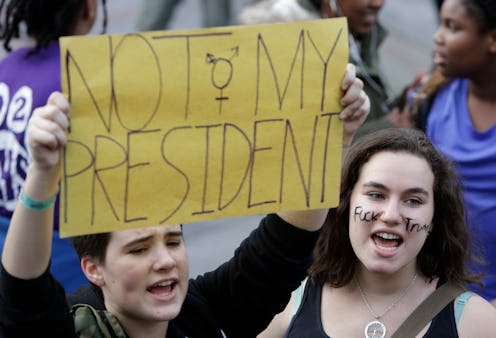News
Not All Electors Will Be Able To Meet Face-To-Face
The electoral college is getting a lot of focus now, as it has once again allowed a candidate to win the presidency despite losing the popular vote. And unfortunately, it's not the first time this has happened: Hillary Clinton is the fifth presidential candidate in American history to win the most votes but fail to win the electoral college. As many Americans are now realizing, it is America’s 538 electors, spread across 50 states and the District of Columbia, who choose presidents, not everyday voters. And where do the electors meet to cast their votes?
This is something that’s decided on a statewide basis by state lawmakers. In general, though, the electors meet at their state capitol building to cast their votes for president and vice president. This vote takes place on Dec. 19 this year, regardless of the state.
There’s no federal law requiring electors to vote in accordance with how their state voted, and in several elections throughout history, “faithless electors” have voted for candidates who didn’t win their state’s popular vote. But faithless electors have never actually swung the results of an election, and they likely won't this year, either.
For one, the electors who will vote for Donald Trump aren’t neutral — they were chosen by their state parties, in part, because they support Trump. Second, even if enough of them defected and voted for Clinton, an 1887 law gives Congress final say over an election if the votes of electors are disputed. And the Republican Party controls Congress. Finally, Clinton has already conceded the election.
The fact of the matter is that Trump will soon be sworn in as America’s next president, despite having received fewer votes than his opponent. And this is by design: The founding fathers created the electoral college as a check against pure democracy, as they didn’t trust the populace at large to directly elect its presidents. Initially, the system allowed each state to devise its own system for allocating electoral votes, and many states decided not to hold popular votes at all. Instead, the state legislature voted on the president, and whoever won received the state’s electoral votes.
Nowadays, every state holds a popular vote, and that’s much more democratic than the alternative. However, it’s not purely democratic, and as we witnessed on Nov. 8, the system as it exists now doesn't always reflect the popular vote.
